Fun, Fast & Easy
The article is reprinted with permission from one of my favorite bloggers, Michael Hyatt. Michael is a Jesus follower who is committed to making an impact in his circle of influence and he offers those of us in church work some sound advice in this blog post. Michael’s blog can be found at www.michaelhyatt.com.
The Myth of Fun, Fast, and Easy
Starting things is simple. It’s progress that’s hard. Nothing makes that truth come alive like looking back on your week and seeing what didn’t get finished. When we begin a project there’s all kinds of enthusiasm. We’re energized by that surge of excitement that comes from novelty and our own creativity. But that surge is like starter fluid; it’s not the fuel that will see us through the journey. Some of us are more prepared to accept this than others. In her book The Gifts of Imperfection researcher Brené Brown blames our reluctance on the culture of fun, fast, and easy. We are conditioned to want results, now—tomorrow at the very latest. And we want it without expending a lot of effort. And of course, we must have fun doing it, otherwise, we are on to the next shiny thing. But other than few lucky or highly controlled exceptions, most payoffs are not immediate.
The Urge to Quit
Unmet by the success we expect, we can lose heart and give up. I’ve seen this a hundred times in a dozen contexts:
The author who is excited about a new idea but who grinds to a halt four months into writing the book.
The spouse who is worn down after five years of marriage and is ready to walk away.
The employee who fails to hit their goals and starts checking out.
The blogger who doesn’t see a dramatic increase in traffic after a month of consistently posting.
*The Pastor who loses hope about ever seeing his church make the changes it needs to make.
I’ve got personal examples galore, and I’m sure you do as well. The truth is that anything worth doing isn’t all fun, it’s almost never fast, and it certainly isn’t easy. Take fitness. I knew I needed more core strength; it’s one of the keys for balance and endurance, specially in the second half of life. But I wasn’t making any progress. I started half a dozen times but couldn’t gain any momentum, so I finally hired a fitness trainer. It’s been tough. My trainer constantly pushes me out of my comfort zone. And progress seems slow at my age. And, of course, it’s not free. There’s a cost in terms of time and money.
Five Actions to Battle the Myth
Honestly, I am frequently tempted to quit, buying into the myth of fun, fast, and easy. When that happens, I take five actions:
Maintain perspective. Look at careers of the great leaders. Was it an instant shot to the top with no setbacks for any of them? No, because obstacles, reversals, and even failures are all part of the story for everyone. We can’t bank on being the exception—that’s just an illusion guaranteed to derail and disappoint us even more than the problems we’re facing.
Reframe frustrations. Most things depend to some degree on how we look at them. Instead of letting the worst picture prevail, I ask myself empowering questions to help me push past the difficulty I face. What, for instance, could this obstacle make possible? How can I grow in this situation? What should I be learning in this challenge?
Abandon perfectionism. “If a thing is worth doing, it’s worth doing badly,” said G.K. Chesterton. That line always makes me laugh, but it carries an essential truth: Doing is better than not doing perfectly. Why get hung up on the fact that things are going perfectly—or even really well? If it’s worth doing at all, we should keep going.
Provide margin. This one is super practical. Few things are as fast and easy as we imagine. So plan accordingly! In Essentialism Greg McKeown talks about adding a 50 percent buffer to our project timelines. Why set ourselves up to fail?
Embrace agency. Don’t lose sight of this. Entitlement, as Brené Brown says, is about feeling like we deserve success. Agency is the exact opposite. It’s realizing we must work to achieve it. Agency sees an obstacle and says, “I can overcome this,” while entitlement complains about not being done yet. If we keep our agency, we can survive the times our dreams cease being fun, fast, or easy.
Getting to the Other Side
In his book A Million Miles in a Thousand Years, Donald Miller tells the story of crossing a stretch of water. Paddling from shore gives us the rush of anticipation and progress. But the anticipation fades and the progress seems to slow. Pretty soon we’re in the ‟messy middle,” doubting if we have the strength to make it to the other side—or maybe why we started in the first place. If you’re there right now, keep paddling. Soon the shore will come into view. Inspiration is good for starters. After that, perspiration is the key. And if you defeat the myth of fun, fast, and easy, you’ll enjoy success that’s satisfying, fruitful, and rewarding.
© 2013, Michael S. Hyatt. All rights reserved. Originally published at www.michaelhyatt.com
Dan Scarrow
District Superintendent
North Central District of The C&MA

